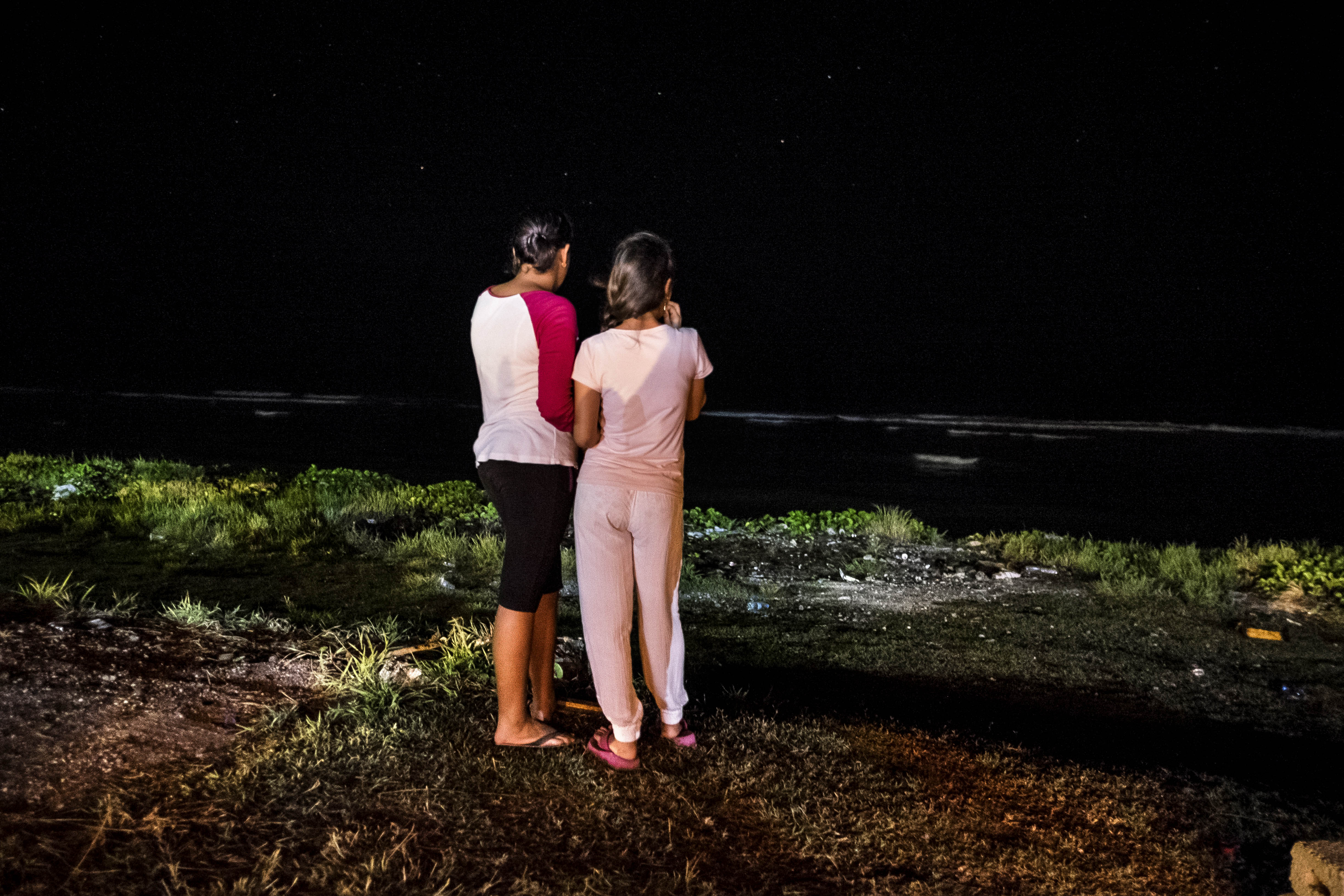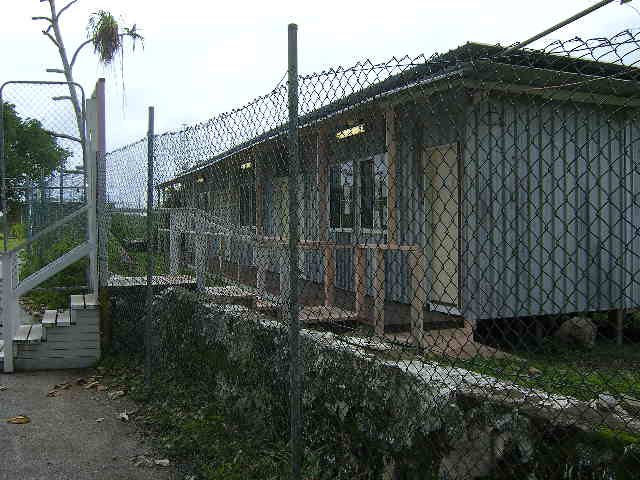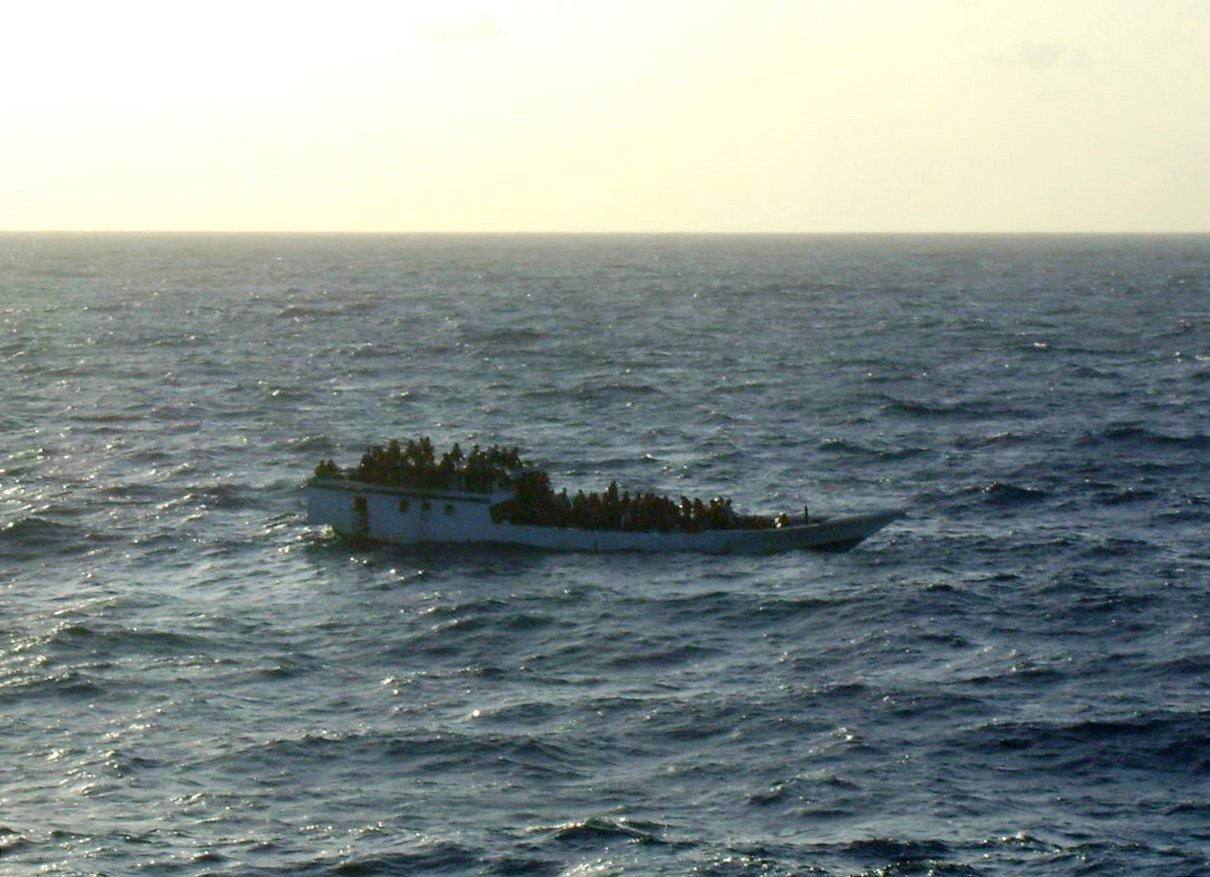Australia grants visa to Iraqi man held on Pacific island for five years
Australia grants visa to Iraqi man held on Pacific island for five years

CANBERRA, Australia, February 1 (UNHCR) - The ordeal of Iraqi refugee Mohammed Faisal is finally over after he was granted an Australian protection visa following five years stuck on a tiny Pacific island and five months in a psychiatric hospital in Brisbane.
The UN refugee agency welcomed the resolution of the 27-year-old's case after he was given the all-clear on Wednesday to live and work freely in Australia. "I want to meet with friends, focus on my health, study and help my family who are still in Iraq," he told UNHCR after receiving his permanent visa.
Faisal was one of hundreds of asylum seekers from various countries who were held on the Pacific island nation of Nauru as part of an Australian immigration strategy aimed at deterring others from trying to reach mainland Australia.
The young man, arriving by boat in 2001, was eventually recognised as a refugee following a review of remaining Iraqi claims on Nauru in 2005. But while the cases of the other asylum seekers were resolved, Australia's national intelligence agency ruled that Faisal and fellow Iraqi, Mohammed Sagar, posed a security risk and should not be granted a visa to Australia.
UNHCR has since found Sagar a resettlement place in Scandinavia and he is expected to travel to his new homeland later this month. But Faisal's case was only resolved after he became suicidal and was transferred to a psychiatric hospital in the eastern Australian city of Brisbane last August.
Faisal was able to lodge an application for a protection visa after his arrival in Australia, triggering a fresh assessment by the Australian Security Intelligence Organisation. The agency now classed him as not being a risk to national security.
Sandi Logan, a spokesperson for Australia's immigration and citizenship department, said Faisal now met "all criteria entitling him to the grant of a protection visa and consequent release from detention."
Australian Attorney General Phillip Ruddock told reporters in Sydney on Wednesday that the security agency "came to a different view on the basis of fresh consideration of material that was before it that was different to what was before them before."
A relieved Faisal told UNHCR in Brisbane about the enormous support he had received from people in Nauru and Australia, including new friends made in the hospital. On his first day of freedom, he was back visiting Ringo, an Australian war veteran and fellow patient. "I am worried about my friend Ringo, worried to leave him alone with himself. And so I came here to visit him today, to give him his medication and make sure he has his food."
In the coming days, Faisal will travel to Melbourne to meet friends and supporters, including other refugees who spent time on isolated Nauru, which receives aid in return for holding asylum seekers while Australia processes their applications. There are currently eight asylum seekers from Myanmar on Nauru, taken there by Australia after they were found on Ashmore Reef in August 2006.
Susan Metcalfe, a close friend of Faisal, said that with the uncertainty over he could get on with rebuilding his life. "The healing began when a visa was placed in his hand," Metcalfe said, adding: "He now has some peace of mind knowing that he will have a future in this country, that he can get a job, make choices for himself, and even ... walk down the street by himself."
Australia struck deals in 2001 to use Nauru and Manus Island in Papua New Guinea as offshore processing centres for the hundreds of boat people trying to reach the country's shores. The move came after a Norwegian freighter, the MV Tampa, rescued 433 asylum seekers from a leaking fishing boat and was refused permission to bring them to Australia.
Under subsequent legislation, all asylum seekers arriving at islands excised from Australia's migration zone had their claims heard offshore. Since 2001, a total of 1,547 people were processed on Nauru or Manus Island. Of these, 482 returned voluntarily to their countries of origin following negative refugee status decisions.
Another 1,062 were resettled on either refugee or humanitarian visas, with more than half coming to Australia. Until Wednesday, Faisal was the last remaining asylum seeker of this caseload after his compatriot Sagar was accepted for resettlement in December.
By Ariane Rummery in Canberra, Australia







